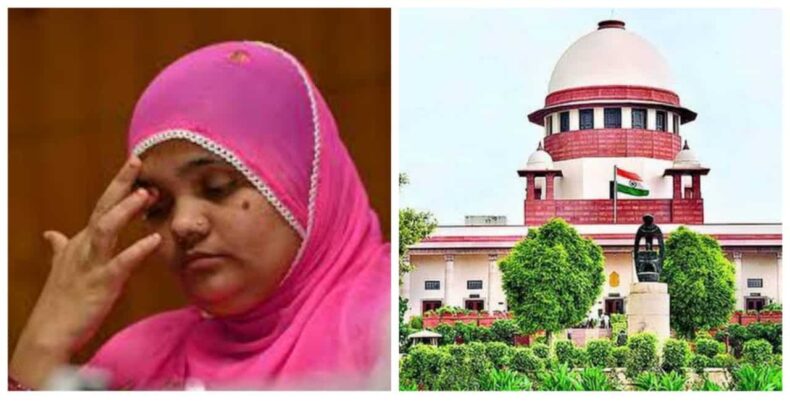The Supreme Court dismissed the petition filed by Bilkis Bano to review the release of 11 men who raped her and killed her family members.

Bilkis Bano filed a case of rape and murder against 11 men on 3 March 2002 on the day of the gruesome incident.
After the police officers refused to register her case, she approached the National Human Commission(NHRC) and the Supreme Court. The Central Bureau of Investigation(CBI) was assigned to investigate her case.
In January 2008, 11 of the convicts were given life imprisonment for the gang rape and murder of Bilkis Bano’s family by a special CBI court.
On August 15 2022 almost after two decades, the 11 convicts were released.
The government defended the release of the convicts stating it was under the 1992 policy of remission.
Raj Kumar, Additional Chief Secretary of Gujarat told PTI ““These 11 persons were convicted by a special court in Mumbai in 2008. At the time of conviction, Gujarat was following a remission policy which came into effect in 1992. When the matter reached the Supreme Court, it directed us to decide about the release under the 1992 policy, because that was prevalent when conviction came in 2008.”
1992 policy of remission
This policy allowed early release of life convicts who on and after December 18, 1978, served out fourteen years imprisonment.
Yakub Rasool, Bilki‘s husband told the Indian Express “We have been left numb, shocked and shaken. The battle we fought for so many years has been wrapped up in one moment. A sentence of life imprisonment given by the court has been curtailed in such a manner… We had never even heard of the word ‘remission’. We didn’t even know that such a process exists.”
After the shocking release of the 11 convicts, Bikis Bano filed two petitions.
One to review the court’s order that asked Gujarat to consider the release request and the other, challenging the grounds of release.
On 13 December, The Supreme court dismissed the petition asking the court to review the court’s order to release the convicts.

Bilkis Bano Case
After the Godhra train accident (2002) that claimed the lives of fifty-nine Hindu pilgrims and karsevaks returning from Ayodhya on the Sabarmati Express Train, a communal riot followed.

Bilkis Bano( then 21 and pregnant) escaped from her village(Randhikpur) with her 16 family members.
They took refuge in the Chhaparvad District.
On 3 March 2002, dozens of people attacked them. Among the attackers were the 11 convicts.
Five women including Bikis were raped brutally, eight were killed and six were missing.
Bilkis made her way to the Limkheda police station to register a complaint three hours after the incident when she gained consciousness.













